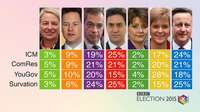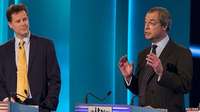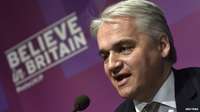Democratic lawmakers will unveil a slew of new immigration-related proposals Tuesday, including measures that would extend state-paid health coverage to those in the country illegally and offer more protection against deportation.
Legislators behind the 10-bill package aim to build on the landmark immigration laws passed in California in recent years, such as one that allows people without legal residency to obtain driver’s licenses.
By keeping momentum on immigrant-aid policies, legislative leaders said, they hoped to spur liberalization of immigration laws nationwide.
“Our message to other states and to members of Congress in Washington, D.C., is that there’s nothing to be afraid of,” said Senate leader Kevin de León (D-Los Angeles). “What is it that we fear in embracing the millions of human beings that are already living in our communities?”
The most far-reaching of the new proposals would offer enrollment in Medi-Cal — California’s healthcare program for the poor — to people who qualify regardless of immigration status.
In California, about 1.8 million people who are in the country illegally lack healthcare coverage, according to estimates by UC Berkeley and UCLA. About 1.5 million of them would qualify for Medi-Cal.
Joe Guzzardi of the group Californians for Population Stabilization, which calls for strict enforcement of immigration laws, decried benefits such as healthcare coverage for those without papers, saying they increase the strain put on the state by immigration.
“It doesn’t make any sense to keep on reaching out and encouraging more illegal immigration into California,” Guzzardi said.
“More people into California means more water consumption, more resource depletion, more traffic on the roads, more urban sprawl — that’s beyond question but it doesn’t seem to bother [lawmakers].”
Medi-Cal rolls are already expected to swell because of President Obama’s recent executive action offering temporary deportation relief to certain immigrants. Researchers at UCLA and UC Berkeley estimate up to half a million people may qualify for coverage under the directive, which is currently on hold because of a court injunction.
The Medi-Cal bill, SB 4 by Sen. Ricardo Lara (D-Bell Gardens), would also direct the state to ask the federal government to allow higher-income people in the country illegally to buy insurance through the state-run Covered California exchange.
Should the state not receive that permission, it would build a separate exchange for such immigrants if the measure became law.
Lara pushed a similar proposal last year, but it stalled in the Legislature because of its cost, which legislative analysts said could be as high as $1.4 billion. This year, Lara said, the tab’s been trimmed by not offering state subsidies for those buying insurance on the exchange, although his office said a new cost estimate is still being calculated.
“We’ve wanted to be serious about our governor’s call to be frugal in how we conduct our business,” Lara said. “This is a very measured approach that really gets to the crux of this issue without being overly burdensome to the state.”
But the proposal may get some resistance from the governor.
Brown has been effusive about California’s immigration actions, and such praise has served as a goad to Congress. But the governor has been cooler on boosting social services that carry a high price tag — and healthcare costs have already proved to be a challenge to the state budget.
“Providing the security of health coverage to so many Californians who need it is the right thing to do. But it isn’t free,” Brown said in January.
A spokesman for Brown on Monday declined to comment on Lara’s measure, noting that the governor usually does not weigh in on pending legislation.
Other proposed measures would protect immigrants from prejudice and deportation.
One bill, SB 600 by Sen. Richard Pan (D-Sacramento), would make it illegal for businesses to discriminate in providing services on the basis of immigration status, citizenship or language. California law currently bars discrimination based on age, religion, race and sexual orientation, among other things.
Another proposal is aimed at increasing access to temporary federal visas for victims of certain crimes, such as sexual assault or human trafficking.
Under the bill, SB 674 by De León and Assembly Speaker Toni Atkins (D-San Diego), law enforcement and government officials would be required to fill out forms necessary for such visa applications.
Twitter: @melmason
Copyright © 2015, Los Angeles Times
Source Article from http://latimes.com.feedsportal.com/c/34336/f/625246/s/452cb1a0/sc/7/l/0L0Slatimes0N0Cabout0Cla0Eme0Epol0Eimmigration0Elegislature0E20A150A40A70Estory0Bhtml0Dtrack0Frss/story01.htm
With new immigration proposals, state lawmakers hope to build momentum
http://latimes.com.feedsportal.com/c/34336/f/625246/s/452cb1a0/sc/7/l/0L0Slatimes0N0Cabout0Cla0Eme0Epol0Eimmigration0Elegislature0E20A150A40A70Estory0Bhtml0Dtrack0Frss/story01.htm
http://news.search.yahoo.com/news/rss?p=immigration
immigration – Yahoo News Search Results
immigration – Yahoo News Search Results












